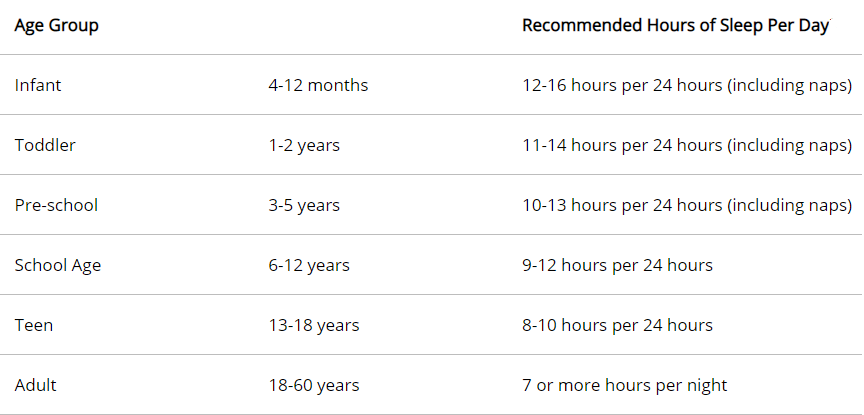Getting enough sleep is important for people of all ages to stay in good health.
A third of US adults report that they usually get less than the recommended amount of sleep. Not getting enough sleep is linked with many chronic diseases and conditions—such as type 2 diabetes, heart disease, obesity, and depression—that threaten our nation’s health. Not getting enough sleep can lead to motor vehicle crashes and mistakes at work, which cause a lot of injury and disability each year. Getting enough sleep is not a luxury—it is something people need for good health. Sleep disorders can also increase a person’s risk of health problems. However, these disorders can be diagnosed and treated, bringing relief to those who suffer from them.
People will often cut back on their sleep for work, for family demands, or even to watch a good show on television. But if not getting enough sleep is a regular part of your routine, you may be at an increased risk for obesity, diabetes, high blood pressure, coronary heart disease and stroke, poor mental health, and even early death. Even one night of short sleep can affect you the next day. Not surprisingly, you’re more likely to feel sleepy. On top of that, you’re more likely to be in a bad mood, be less productive at work, and be involved in a motor vehicle crash.
Understanding how lack of sleep affects your health can allow you to make healthier decisions for you and your family. How much sleep you need changes as you age. The American Academy of Sleep Medicine and the Sleep Research Society recommend:

Habits to improve your sleep
There are some important habits that can improve your sleep health:
- Be consistent. Go to bed at the same time each night and get up at the same time each morning, including on the weekends.
- Make sure your bedroom is quiet, dark, relaxing, and at a comfortable temperature.
- Remove electronic devices, such as TVs, computers, and smart phones, from the bedroom.
- Avoid large meals, caffeine, and alcohol before bedtime.
- Avoid tobacco/nicotine.
- Get some exercise. Being physically active during the day can help you fall asleep more easily at night.
What about sleep quality?
Getting enough sleep is important, but good sleep quality is also essential. Signs of poor sleep quality include feeling sleepy or tired even after getting enough sleep, repeatedly waking up during the night, and having symptoms of sleep disorders (such as snoring or gasping for air). Better sleep habits may improve the quality of your sleep. If you have symptoms of a sleep disorder, such as snoring or being very sleepy during the day after a full night’s sleep, make sure to tell your doctor.
Source: CDC.gov

